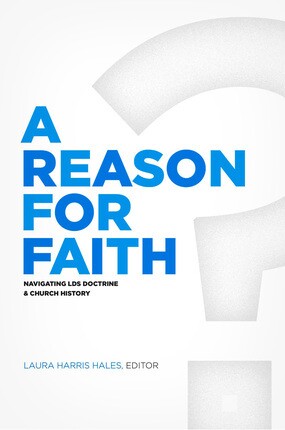This post is in no way meant to disprove or invalidate the importance of The Church of Jesus Christ of Latter-day Saints on the earth today but to help members find ways to be more inclusive and loving toward our brothers and sisters who are part of other religions. Sometimes as members of the Church, we become so focused on our knowledge and beliefs that we forget that we can still learn from others.
Mormons are a special people, but there is still much we can learn from other religions. Instead of concentrating on our singularities, it may be more helpful to adopt an attitude of inclusivism. Mormonism may be unique, the most effective, and the overall preferential religion in leading one to an eternal destination, but other religions are also positive paths. Our road may lead to God, but the other roads don’t necessarily lead to Satan.
Five principles may help us better understand Mormonism’s relationship to other religions:
1. Members do not know everything.
The Church of Jesus Christ of Latter-day Saints offers the necessary teachings and ordinances to access the Atonement of Jesus Christ and reach exaltation. However, just because all these principles and teachings are found within the Church, it does not mean that members know everything.
Members do not possess all truth or have all that will be revealed to mankind. One of the primary tenets of our religion is the belief in continuing revelation, which means there is more to come.
2. Obtaining unique ordinances alone will not save us.
Ordinances are more than symbolic rituals or legalistic actions. They embody experiences of transformation, inspiration, and sanctification, functioning as initiations of covenants that begin and mark a consecrated life.
An ordinance without sanctification is ultimately only a nice experience. It is what the ordinance does, how it focuses the individual, how it leads to repentance, recommitment, and surrender to God’s will that make it truly necessary. It is the process of transformation into a being who is more like God, which ultimately represents the final requirement for exaltation.
Any manifestation of goodness and light, whatever its specific source, is of some salvific value inasmuch as it embodies a witness of the divine’s connection to the world.
3. Why would it be just us?
About .2 percent of the current world population is Latter-day Saint. It doesn’t seem probable that a universal Heavenly Father, who loves all of His children, operates on this earth only within the LDS Church. This would severely limit His work and His presence on the earth. We can claim that He operates preferentially through the LDS Church or more intensely through it, but we have no monopoly on inspiration, miracles, answered prayers, or spiritual insights.
By definition, God’s love is infinite. Those who don’t belong to the LDS Church also fit into His plan. The gospel’s influence has appeared at many different levels, in different times and cultures, and in different faiths.
4. Other churches teach truth.
The German scholar Max Muller famously said, “He who knows one, knows none” in reference to religion. If all that we ever know is our own faith, it is difficult for us to truly appreciate what we believe and be able to build a strong foundation for our faith.
If we cannot place our faith into a broader religious context, we experience our religion in a vacuum, making it difficult to collect light and truth and understand why we believe the way we do.
5. Other churches are not necessarily an abomination to the Lord.
Joseph Smith’s History summarizes Christ’s words as condemning churches because “all their creeds were an abomination in His sight.”
Roger Keller noticed that “there is a tendency to understand the word creed here as a confession of faith, such as the Apostles’ Creed or the Nicene Creed. The whole context negates this interpretation, however, for that which precedes and follows this passage deals entirely with the religious people of Joseph’s day. Thus, their creeds were their professions of faith, which had few outward manifestations of love.”
How Other Religions Can Strengthen Our Faith
In the context of other religions, a filter that divides religions into “purely from God” or “purely from Satan” is a dichotomy that doesn’t fit the mess of the human condition. The beauty and the miracle of life is that one can still find God in this mess and, in some cases, quite powerfully.
While the restored gospel makes Mormons special in a way, they are not special in terms of how beloved they are by our Heavenly Father. To some degree or another God can be found among all of His children and to see His hand among our brothers and sisters of other religious persuasions will only strengthen our faith.
Listen to the LDS Perspectives Podcast below to learn more with host Laura Harris Hales and guest Mauro Properzi.
Be sure to check out Mauro Properzi’s “Learning about Other Religions: False Obstacles and Rich Opportunities” published by the BYU Religious Studies Center.
Lead image from Getty Images
Be sure to check out A Reason for Faith: Navigating LDS Doctrine and Church History by Laura Harris Hales.
A Reason for Faith was written to do just as the title implies, provide reasons for faith by offering faithful answers to sincere questions. Before the Internet, historical and doctrinal questions not addressed in LDS Church curriculum were mostly found in the scholarly articles of academic journals. This is no longer the case. These topics are now widely debated and discussed online and in other forums. And when members of the LDS Church come across information that is unfamiliar, they may feel surprise, fear, betrayal, or even anger. Laura Harris Hales has assembled a group of respected LDS scholars to offer help.



